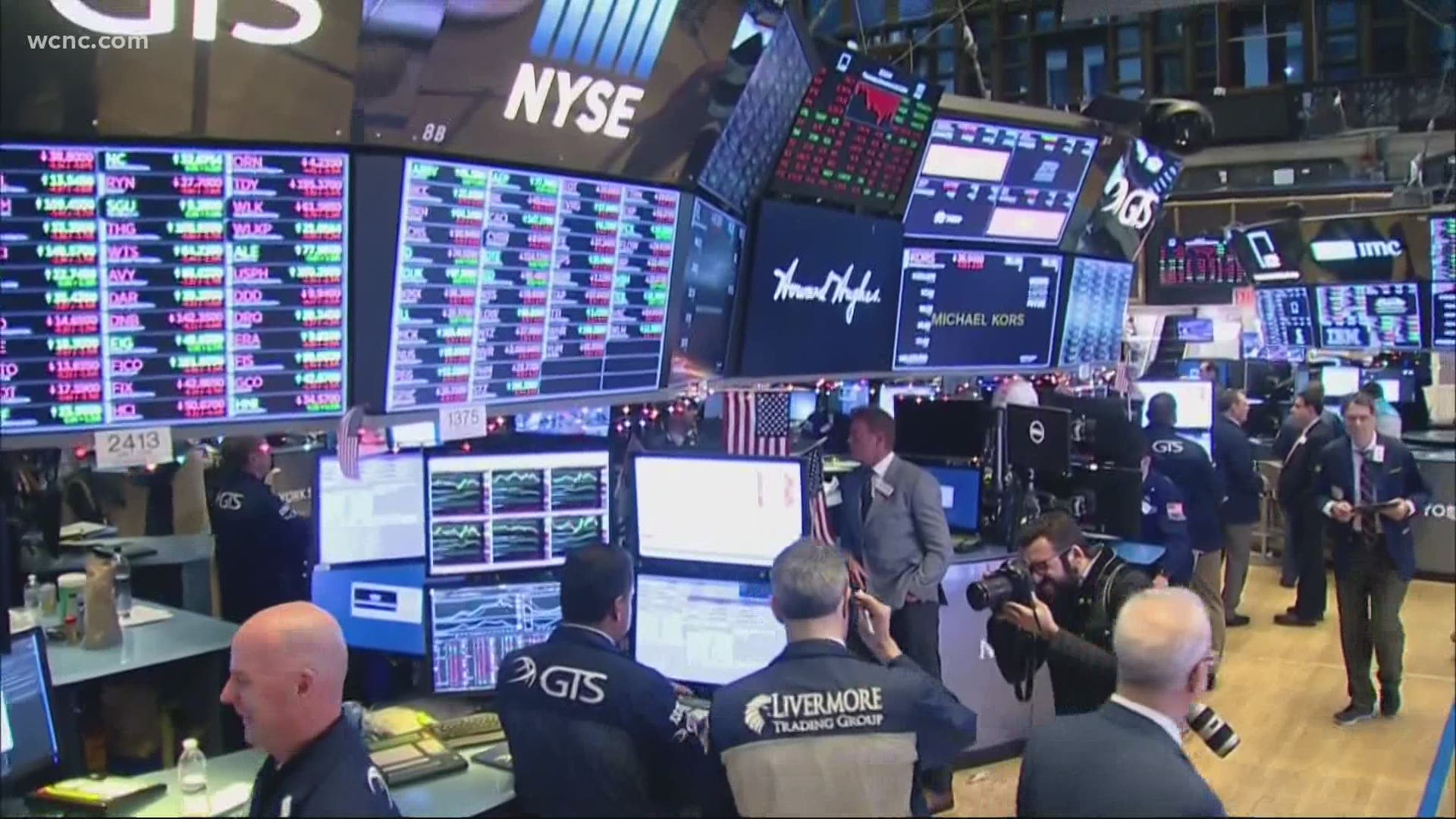CHARLOTTE, N.C. — It’s been said that the stock market is the single best way to accumulate long-term wealth. But, there have been some pretty wild swings on Wall Street these days that likely have made investors very anxious.
“We’re going to get through the pandemic, but now is the time to stay the course and keep your eye on the ball towards retirement," James Royal, a financial analyst for Bankrate.com said. "If someone is just getting in, it’s a great time to start with a plan, and stick to it."
These are pre-tax dollars after all. Royal has some advice for the casual investor with a 401k. “Leave it on auto pilot and just watch it go up over time."
Seeing is believing and sometimes we need to be reminded of what we can make in the long term even with a pinch of chaos thrown into the mix.
According to a Bankrate.com retirement calculator, a 25 years old making $40,000 a year with a 2% raise each year and contributing 10% of their salary with a 3% employer match, by 65 years old the plan could pay off big time. A modest 7% return would net the investor around $1,084,152.
Thinking about taking some of that money early, before 59 ½? Not a good idea, according to experts.
RELATED: What to do if you're laid off
Remember, 401k is pre-tax, so if you decide to take a withdrawal, you’ll pay taxes and the IRS usually withholds 20%. In addition to paying the taxes, you will likely pay a penalty of 10%. So if you decide to take $10,000 early, you’d likely only get $7,000 after taxes and penalty. There are some exceptions, so it’s best to consult a tax professional when considering this early withdrawal option.
On the subject of getting your money, the IRS has rules on that too.
If you reached the age of 70½ in 2019 the prior rule applies, and you must take your first RMD by April 1, 2020. If you reach age 70 ½ in 2020 or later you must take your first RMD by April 1 of the year after you reach 72, according to the IRS website.

